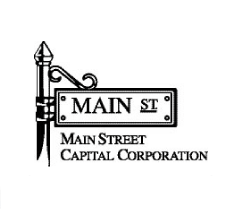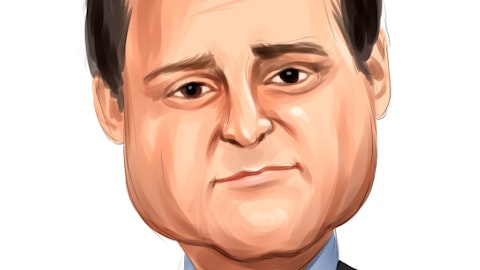Insider trading activity is always an important indicator to track, and it’s usually better to emulate bullish corporate execs than their bearish counterparts. As the old saying goes: “there are many reasons for an insider to sell shares of a company, but only one reason for them to buy.” One such stock that has seen a round of insider buying this week is Main Street Capital Corporation (NYSE:MAIN), a mid-sized investment firm that offers customized financing options to small-cap companies. Most of Main Street’s business partners are located in the Southern U.S., which partake in a variety of debt/equity servicing scenarios like re-growth strategies for mature companies, management buyouts, and recapitalization programs.
Since the start of 2012, Main Street has been a solid investment, returning close to 40%, outpacing the likes of Solar Capital Ltd. (NASDAQ:SLRC), and larger peers like BlackRock, Inc. (NYSE:BLK), State Street Corporation (NYSE:STT), and Franklin Resources, Inc. (NYSE:BEN). Much of this extraordinary appreciation can be attributed to Main Street’s dividend increase to 15 cents a share, rising EPS estimates, and a strong fiscal performance during the second quarter, but one point that is overlooked by mainstream media is the sheer size of bullish insiders buying up shares in recent weeks.
Since September 14th, eight different Main Street insiders have bought shares of the company, including CEO Vincent Foster, Director Joseph Canon, EVP Rodger Stout, President Todd Reppert, CIO David Magdol, CFO Dwayne Hyzak, CCO Curtis Hartman, and Director Kevin Jon Griffin. Here’s a complete look at their Form 4 filings with the SEC. Altogether, the transactions totaled 4,900 shares at an average cost of close to $28.50 each. The most bullish insider was Foster, who purchased close to $100,000 worth of his company. While the numerical value of these buys pale in comparison to the activity at some larger companies, it is notable because of the breadth of employees that were involved. We’re hard-pressed to name a more integral piece of Main Street’s management structure than the group listed here.
As mentioned above, the investment firm’s earnings impressed last quarter, beating the Street’s estimate by 11.9%, posting an EPS of 47 cents a share versus a 42 cent consensus. In Main Street’s conference call, both Foster and Reppert stated that from their perspective:
Our middle market investing activity continues to grow, as previously discussed. We continue to see attractive risk-adjusted yields and acceptable structures [and] [w]e are very pleased to report another strong quarter, which reflects our long-term strategy of realizing sustainable growth in earnings and dividends per share, while also generating meaningful growth in NAV per share.
In short, Main Street is placing the majority of its efforts into creating strong dividend opportunities for income investors, while stimulating earnings expansion for growth-oriented investors. Though many companies can claim that to want both objectives, Main Street is actually backing up its promises, and in addition to its aforementioned dividend increase, it is expecting EPS growth to remain steady at 4.2% next year after generating positive surprises in three straight quarters.
Over the longer term, Main Street expects its EPS to grow at an average rate of 7.0% a year over the next half-decade. This compares favorably to peers like Solar Capital (5.0%), but falls behind BlackRock (12.5%), State Street (9.8%), and Franklin (9.0%). From a valuation standpoint, however, we can see that investors may have yet to fully appreciate Main Street’s earnings growth, as it trades at a PEG ratio of 1.20, below Solar Capital (2.64) and Franklin (1.67), and nearly in line with both BlackRock (1.20) and State Street (1.15).
When standard trailing (8.8X) and forward (15.0X) P/Es are used, we can begin to see a larger undervaluation, as Main Street’s historical earnings trade at a decent discount to the likes of Solar Capital (13.2x), Franklin (14.9X), BlackRock (15.0X), and State Street (11.2X). Just as significant is the stock’s cheapness in relation to its own 5-year historical average, which is almost 50% larger than Main Street’s current valuation.
In addition to the multitude of insiders who are bullish on their company, notable hedge fund billionaires like Cliff Asness, D.E. Shaw, and Israel Englander hold shares, with Asness and Shaw upping their stakes by an average of 403% last quarter. Here’s a complete look at the hedge fund sentiment surrounding Main Street. As our empirical studies and our research has shown, individual investors who mimic or “monkey” the world’s most successful money managers can beat the market with regularity. Positive insider activity yields similar results. With both indicators giving Main Street Capital a resounding “Buy,” it may be wise to listen.






